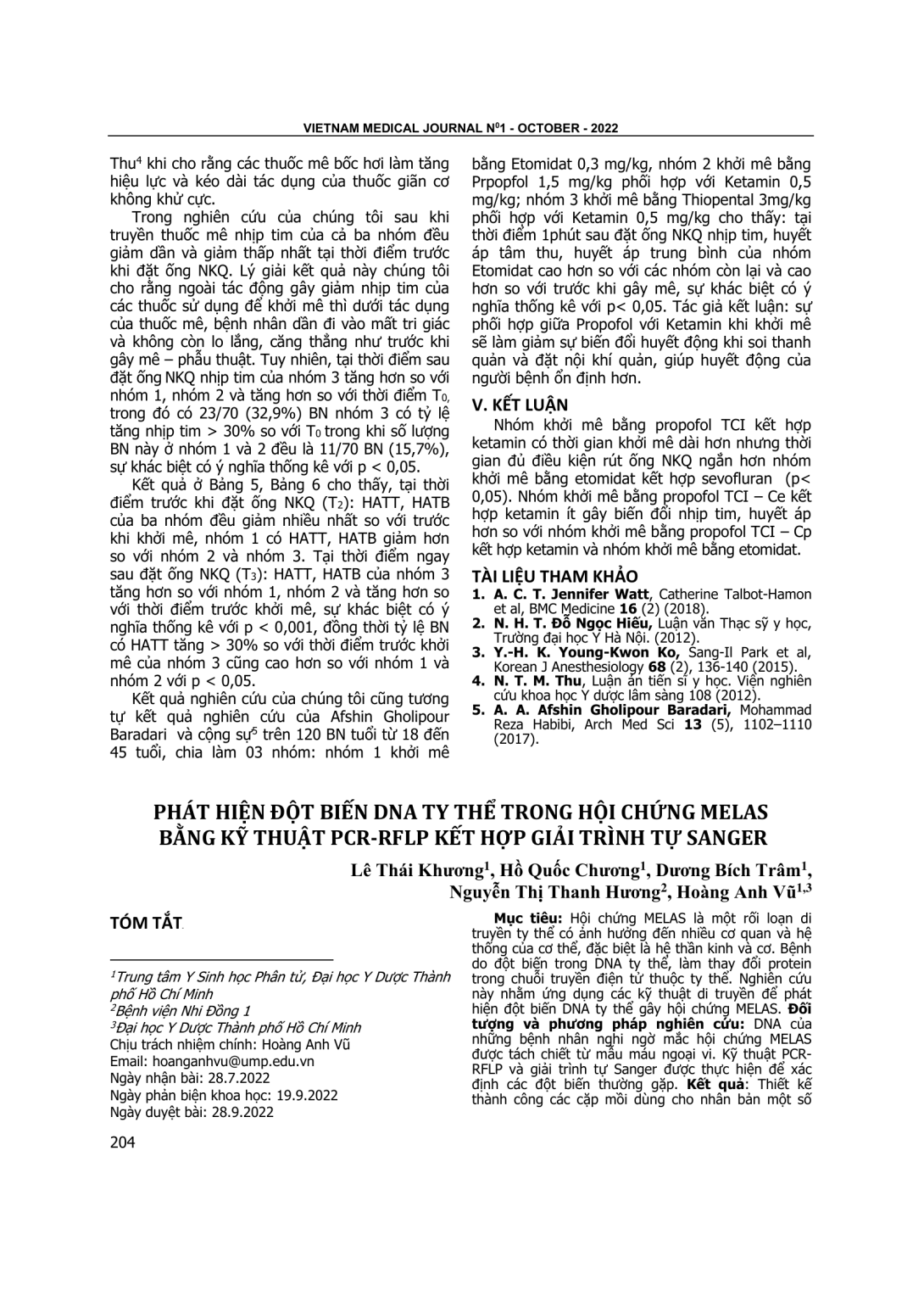
Hội chứng MELAS là một rối loạn di truyền ty thể có ảnh hưởng đến nhiều cơ quan và hệ thống của cơ thể, đặc biệt là hệ thần kinh và cơ. Bệnh do đột biến trong DNA ty thể, làm thay đổi protein trong chuỗi truyền điện tử thuộc ty thể. Nghiên cứu này nhằm ứng dụng các kỹ thuật di truyền để phát hiện đột biến DNA ty thể gây hội chứng MELAS. Đối tượng và phương pháp nghiên cứu: DNA của những bệnh nhân nghi ngờ mắc hội chứng MELAS được tách chiết từ mẫu máu ngoại vi. Kỹ thuật PCR- RFLP và giải trình tự Sanger được thực hiện để xác định các đột biến thường gặp. Kết quả: Thiết kế thành công các cặp mồi dùng cho nhân bản một số vùng trên DNA ty thể liên quan đến hội chứng MELAS. Hai đột biến điểm m.3243A>G và m.3697G>A được ghi nhận ở bệnh nhân mắc hội chứng MELAS, trong đó m.3243A>G có thể phát hiện bằng PCR-RFLP. Kết luận: Xây dựng thành công quy trình phát hiện đột biến DNA ty thể ở bệnh nhân mắc hội chứng MELAS bằng kỹ thuật PCR-RFLP và giải trình tự.
MELAS syndrome is a mitochondrial genetic disorder that affects many organs and systems of the body, especially the nervous system and muscles. The disease is caused by mutations in mitochondrial DNA that alter proteins in the mitochondrial electron transport chain. This study aims to apply genetic techniques to detect mitochondrial DNA mutations that cause MELAS syndrome. Materials and methods: Genomic DNA of patients with suspected MELAS syndrome was extracted from peripheral blood samples. PCR-RFLP and Sanger sequencing were performed to identify common mutations. Results: We successfully designed primer pairs for amplification of several regions of mitochondrial DNA associated with MELAS syndrome. The two point mutations m.3243A>G and m.3697G>A were detected in patients with MELAS syndrome, in which m.3243A>G was detectable by PCR-RFLP. Conclusion: The procedure for screening of mitochondrial DNA mutations in MELAS syndrome patients by application of PCR-RFLP and sequencing techniques was completely constituted.
- Đăng nhập để gửi ý kiến
